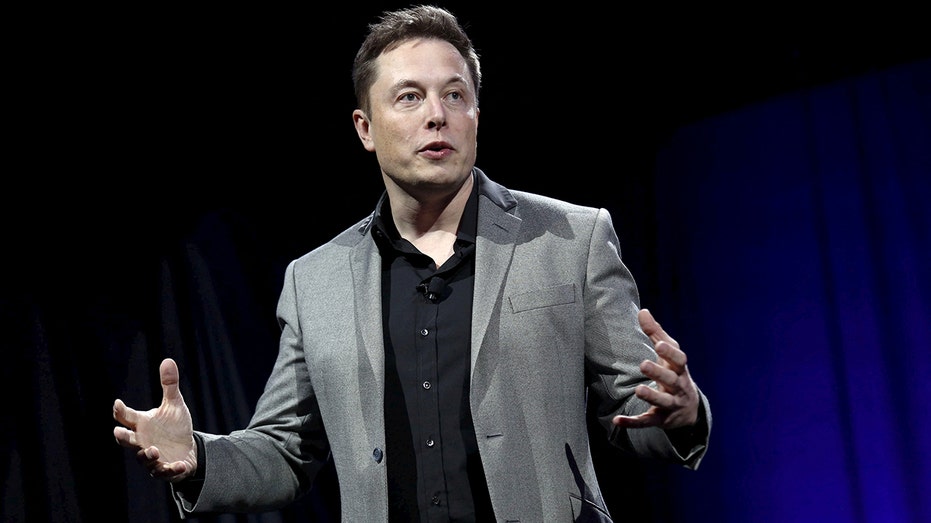Twitter vs Musk: What is a poison pill defense?
Other companies that have utilized poison pills include Kohl's, Papa John's, Dave & Busters and Netflix
Twitter showing its 'dysfunctionality' with poison pill move: Market expert
Andersen Capital Management CIO Peter Andersen critiques Twitter board members' move to stifle Elon Musk's takeover attempt.
Twitter's board has unanimously adopted a limited duration shareholders rights plan, commonly referred to as a poison pill, following Tesla CEO Elon Musk's $54.20 per share offer to take the social media giant private.
| Ticker | Security | Last | Change | Change % |
|---|---|---|---|---|
| TWTR | NO DATA AVAILABLE | - | - | - |
Here is a FOX Business roundup of everything you need to know about Twitter's poison pill.
APOLLO GLOBAL CONSIDERS PARTICIPATING IN A BID FOR TWITTER
What is a poison pill?
A poison pill is a defensive tactic created in the 1980s that is typically used by companies to defend themselves against hostile takeover bids.
There are two types of poison pill strategies: the flip-in and flip-over. The flip-in, which is the more common poison pill strategy, allows a company's shareholders, except for the potential acquirer, to purchase additional shares at a discount when the potential acquirer reaches a specified threshold of beneficial ownership in the company. Meanwhile, a flip-over poison pill strategy allows stockholders of the targeted company to purchase shares of the acquiring company at a deeply discounted price if the hostile takeover attempt is successful.
| Ticker | Security | Last | Change | Change % |
|---|---|---|---|---|
| WETF | NO DATA AVAILABLE | - | - | - |
| KSS | KOHL'S CORP. | 18.50 | +0.78 | +4.40% |
| OXY | OCCIDENTAL PETROLEUM CORP. | 46.31 | +1.22 | +2.71% |
| PLAY | DAVE & BUSTER'S ENTERTAINMENT INC. | 19.27 | +0.46 | +2.45% |
| PZZA | PAPA JOHN'S INTERNATIONAL INC. | 34.68 | +0.45 | +1.31% |
| CAR | AVIS BUDGET GROUP INC. | 120.42 | +5.80 | +5.06% |
| NFLX | NETFLIX INC. | 82.20 | +1.33 | +1.64% |
Companies that have adopted poison pills to fend off hostile takeover bids include WisdomTree, Kohl's, Occidental Petroleum, Dave & Busters, Papa John's, Avis Budget Group, Sotheby's, Men's Warehouse and Netflix.
What are the advantages and disadvantages of a poison pill?
James Cox, a corporate and securities law professor at Duke University, told FOX Business that poison pills can be "terrifically successful."
"To do the deal, the bidder has to reach a negotiated deal with the incumbent board or undertake a time-consuming and expensive proxy campaign to change the composition of the target’s board," Cox explained. "All pills are redeemable until the trigger level is hit, so changing the board’s composition would thereby enable a bidder like Musk to install directors who will redeem the pill."
When designed properly, a poison pill's disadvantages to shareholders of a targeted company are "relatively small," Columbia University law professor Eric Talley tells FOX Business. However, he notes that one potential downside is if "an uninspiring [or] unenlightened board uses it to entrench their positions and prevent any change now or in the future."
CLICK HERE TO READ MORE ON FOX BUSINESS
Twitter's poison pill plan
According to a filing with the Securities and Exchange Commission, Twitter's poison pill plan contains both a flip-in and flip-over trigger if Musk acquires a stake in the company of 15% or more.
Twitter's poison pill will allow all shareholders besides Musk to purchase one-thousandth of a share of Twitter preferred stock for each share of common stock they hold at the exercise price of $210. Each share of preferred stock would be worth twice the exercise price – or $420.
"By my calculations, the resulting dilution implies that Musk would go from owning 15% of Twitter's shares to owning under 2%," Talley estimates.
Twitter's poison pill will expire on April 14, 2023.
Musk's options
Musk could challenge the terms of the poison pill in court, though Cox believes there is "likely no grounds to attack the pill", noting that it is "well entrenched in corporate law."
"By now, the water is far under the bridge on that," Talley adds. "Delaware corporations have a pretty clear ability to promulgate poison pills, and this one does not seem to have any "exotic" features that make it look sketchier than others."

Musk, who owns a 9.2% stake in Twitter, has offered to take the social media giant private at $54.20 per share. (REUTERS/Patrick T. Fallon/File Photo / Reuters Photos)
Musk could also deliberately trigger the poison pill, but Talley advises against the move, calling it a "fool's errand."
"A better strategy is to try to put pressure on the board to redeem the pill," Talley explains. "This would be a slow process, however, because Twitter has a "staggered" board so that only 1/3 of them are up for election in any year. It would thus take two full election cycles for Musk to get a majority of the board."





















